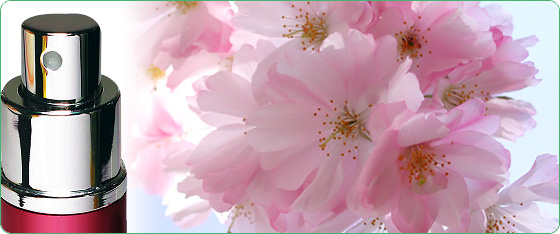
How to Make Perfume at Home
Most perfumes start with an extract of some form, usually from plants or flowers. These extracts, or essential oils, are actually aromatic signals plants send out to
other organisms to attract creatures that will pollinate them or otherwise help propagate the species. They obviously have the intended effect on humans too, as we've planted and replanted our favorite flowers and shrubs all over the world.
When different scents combine, they can create new and unexpected fragrances. Many of our best-known perfumes contain scents and compounds that would surprise you... skunk essence, for instance, was once an ingredient in many popular and expensive perfumes. Experimentation is the key here, as it is not easy to predict how different oils will interact to create scent. We will provide you with some established pairings, however, to help get you started, as certain families of fragrances and oils are known to complement others. Write down what you do as you go along, as you may want to recreate a great perfume you grow to love and will need to know exactly what went into its formulation.
We will also tell you how to go about creating your own extracts at home, using herbs or flowers from your garden or almost anything else you love that gives off an attractive scent. Who knows, you may find you love doing this and start selling your perfumes and colognes to friends and coworkers. Many famous perfumers got started in their own kitchens!
What You’ll Need
- Distilled or de-ionized water
- Alcohol
- Eyedropper
- Perfume bottle
- Essential Oils
You can find distilled or de-ionized water at most grocery stores. You will want to use 190 proof grain alcohol or a quality unflavored vodka, which you can find at any liquor store. You can reuse an old perfume bottle or purchase one at most herbalist shops or health food stores. Essential oils are available at most health food stores as well, though you will find a larger selection online. We will talk about different families of scents a little later, but if you're overwhelmed already by the choices, consider starting with an easy recipe:
- 4 parts orange oil
- 2 parts lavender oil
- 1 parts cinnamon oil
- Sweet almond or jojoba oil
